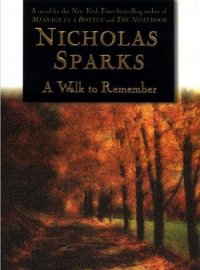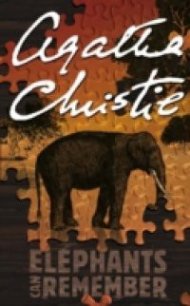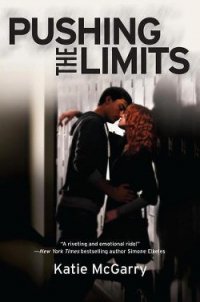Winter Fire - Landis Geoffrey Alan (читать книги полные .txt) 📗
I think, when I was very young, I had some belief that human beings were special, something more than just meat that thought. The siege, an unrelenting tutor, taught me otherwise. A woman I had been with on one day, cuddled in her lap and talking nonsense, the next day was out in the street, bisected by shrapnel, reduced to a lesson in anatomy. If there was a soul it was something intangible, something so fragile that it could not stand up to the gentlest kiss of steel.
People stayed alive by eating leaves, acorns, and, when the humanitarian aid from the sky failed, by grinding down the hard centers of corn cobs to make cakes with the powder.
There were developments in the war, although I did not know them. The Pan-Slavic Army, flying their standard of a two-headed dragon, turned against the triple cross of the New Orthodox Resurgence, and to the east thousands of square kilometers of pacified countryside turned in a day into flaming ruin, as the former allies savaged each other. We could see the smoke in the distance, a huge pillar of black rising kilometers into the sky.
It made no difference to the siege. On the hilltops, the Pan-Slavic Army drove off the New Orthodox Resurgence, and when they were done, the guns turned back on the city. By the autumn, the siege had not lifted, and we knew we would have to face another winter.
Far over our heads, through the ever-present smoke, we could see the lights of freedom, the glimmering of distant cities in the sky, remote from all of the trouble of Earth. "They have no culture," Johann said. "They have power, yes, but they have no souls, or they would be helping us. Aluminum and rock, what do they have? Life, and nothing else. When they have another thousand years, they will still not have a third of the reality of our city. Freedom, hah! Why don’t they help us, eh?"
The winter was slow frozen starvation. One by one, the artillery pieces that defended our city failed, for we no longer had the machine shops to keep them in repair, nor the tools to make shells. One by one the vicious birds fired from distant hilltops found the homes of our guns and ripped them apart. By the middle of February, we were undefended.
And the birds continued to fall.
Sometimes I accompanied Johann to the molecular still. Over the long months of siege, they had modified it so that it now distilled from air and water not merely nitrate, but finished explosive ready for the guns, tons per hour. But what good was it now, when there were no guns left for it to feed? Of the eight men who had given it birth, only two still survived to tend it, old one-legged Nguyen, and Johann.
One day Nguyen stopped coming. The place he lived had been hit, or he had been struck in transit. There was no way I would ever find out.
There was nothing left of the city to defend, and almost nobody able to defend it. Even those who were willing were starved too weak to hold a weapon.
All through February, all through March, the shelling continued, despite the lack of return fire from the city. They must have known that the resistance was over. Perhaps, Johann said, they had forgotten that there was a city here at all, they were shelling the city now for no other reason than that it had become a habit. Perhaps they were shelling us as a punishment for having dared to defy them.
Through April, the shelling continued. There was no food, no heat, no clean water, no medicine to treat the wounded.
When Johann died, it took me four hours to remove the rubble from his body, pulling stones away as birds falling around me demolished a building standing a block to the east, one two blocks north. I was surprised at how light he was, little more than a feather pillow. There was no place to bury him; the graveyards were all full. I placed him back where he had lain, crossed his hands, and left him buried in the rubble of the basement where we had spent our lives entwined.
I moved to a new shelter, a tunnel cut out of the solid rock below the Monchsberg, an artificial cavern where a hundred families huddled in the dark, waiting for an end to existence. It had once been a parking garage. The moisture from three hundred lungs condensed on the stone ceiling and dripped down on us.
At last, at the end of April, the shelling stopped. For a day there was quiet, and then the victorious army came in. There were no alleys to baffle their tanks now. They came dressed in plastic armor, faceless soldiers with railguns and omniblasters thrown casually across their backs; they came flying the awful standard of the Pan-Slavic Army, the two-headed dragon on a field of blue crosses. One of them must have been Dragan Vukadinovi?c, Dragan the Cleanser, the Scorpion of Bratislava, but in their armor I could not know which one. With them were the diplomats, explaining to all who would listen that peace had been negotiated, the war was over, and our part of it was that we would agree to leave our city and move into camps to be resettled elsewhere.
Would the victors write the history, I wondered? What would they say, to justify their deeds? Or would they, too, be left behind by history, a minor faction in a minor event forgotten against the drama of a destiny working itself out far away?
It was a living tide of ragged humans that met them, dragging the crippled and wounded on improvised sledges. I found it hard to believe that there could be so many left. Nobody noticed a dirty twelve-year-old girl, small for her age, slip away. Or if they did notice, where could she go?
The molecular still was still running. The darkness, the smell of it, hidden beneath a ruined, deserted Salzburg, was a comfort to me. It alone had been steadfast. In the end, the humans who tended it had turned out to be too fragile, but it had run on, alone in the dark, producing explosives that nobody would ever use, filling the caverns and the dungeons beneath a castle that had once been the proud symbol of a proud city. Filling it by the ton, by the thousands of tons, perhaps even tens of thousands of tons.
I brought with me an alarm clock, and a battery, and I sat for a long time in the dark, remembering the city.
And in the darkness, I could not bring myself to become the angel of destruction, to call down the cleansing fire I had so dreamed of seeing brought upon my enemies. In order to survive, you must become tough, Johann had once told me; you must become hard. But I could not become hard enough. I could not become like them.
And so I destroyed the molecular still, and fed the pieces into the Salzach. For all its beauty and power, it was fragile, and when I had done, there was nothing left by which someone could reconstruct it, or even understand what it had been. I left the alarm clock and the battery, and ten thousand tons of explosives, behind me in the catacombs.
Perhaps they are there still.
It was, I am told, the most beautiful, the most civilized, city in the world. The many people who told me that are all dead now, and I remember it only through the eyes of a child, looking up from below and understanding little.
Nothing of that little girl remains. Like my civilization, I have remade myself anew. I live in a world of peace, a world of mathematics and sky-cities, the opening of the new renaissance. But, like the first renaissance, this one was birthed in fire and war.
I will never tell this to anybody. To people who were not there, the story is only words, and they could never understand. And to those who were there, we who lived through the long siege of Salzburg and somehow came out alive, there is no need to speak.
In a very long lifetime, we could never forget.




